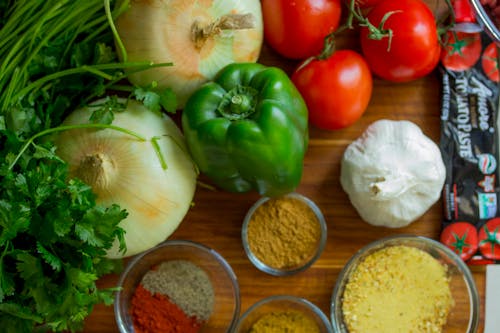Introduction
The demand for imported Indian onions and vegetables has been rising significantly in the arena of international trade. These meals are well-known for their nutritional value, vibrant colors, and flavorful flavors. The quality criteria that govern the import of these goods must be understood in order to ensure that consumers receive the best products available. This page covers a wide range of topics, from grading and packing to safety laws and certifications, in an effort to give readers a thorough grasp of the quality standards for imported Indian onions and vegetables.
The Importance of Quality Standards
High-quality standards are essential in the import of Indian onions and vegetables to maintain the integrity of the products and protect consumer health. Following these guidelines guarantees that the produce satisfies precise requirements for freshness, nutrient value, and safety. Additionally, it helps establish trust between exporters and importers, contributing to a sustainable and reliable global trade network.
Understanding the Quality Standards

Quality standards for imported Indian onions and vegetables encompass several aspects, including grading, packaging, safety regulations, and certifications. Let’s delve into each of these areas to gain a comprehensive understanding.
Grading
Grading is an essential part of the quality assessment process for imported onions and vegetables. It entails classifying the produce according to a number of factors, including size, color, shape, texture, and general look. Grading maintains uniformity and aids consumers in making wise choices about the products’ quality and suitability for their individual needs.
Packaging
Proper packaging plays a crucial role in maintaining the quality and freshness of imported Indian onions and vegetables. The packaging should be robust enough to protect the produce from external factors such as moisture, temperature variations, and physical damage during transit. It should also facilitate proper ventilation to prevent the growth of bacteria or fungi that could spoil the products.
Safety Regulations and Certifications
To ensure the safety of consumers, imported Indian onions and vegetables must comply with relevant safety regulations and certifications. These regulations may include guidelines on pesticide residues, heavy metal content, microbial contamination, and other quality parameters. The items’ compliance with the relevant safety standards is confirmed by certifications from respected organizations like the Food Safety and Standards Authority of India (FSSAI).
Frequently Asked Questions (FAQs)
Now, let’s address some frequently asked questions about the quality standards for imported Indian onions and vegetables:
Are imported Indian onions and vegetables safe for consumption?
Yes, imported Indian onions and vegetables undergo rigorous safety checks to ensure they meet the required standards. These checks include testing for pesticide residues, heavy metals, microbial contamination, and other quality parameters. By adhering to these standards, exporters prioritize consumer safety and deliver products that are safe for consumption.
How are Indian onions and vegetables graded?
Indian onions and vegetables are graded based on various factors, including size, color, shape, texture, and overall appearance. Grading helps maintain consistency and allows buyers to select products that meet their specific requirements. Different grades may be suitable for different purposes, such as cooking, processing, or direct consumption.
What packaging materials are used for imported Indian onions and vegetables?
Imported Indian onions and vegetables are typically packaged using materials such as mesh bags, jute bags, or cartons. These materials provide adequate protection and ventilation while facilitating easy handling and transportation. Additionally, the packaging should be labeled with necessary information, including the product name, grade, origin, and any relevant certifications.
Which certifications should I look for when purchasing imported Indian onions and vegetables?
When purchasing imported Indian onions and vegetables, look for certifications such as those issued by the Food Safety and Standards Authority of India (FSSAI) or other reputable bodies. These certifications ensure that the products meet the necessary safety standards and comply with regulatory requirements.
Can I trust the quality of imported Indian onions and vegetables?
Yes, you can trust the quality of imported Indian onions and vegetables, provided you source them from reputable exporters who adhere to the required quality standards. Look for exporters with a proven track record, certifications, and positive customer reviews. Additionally, consider engaging in direct communication with the exporters to gain more insights into their quality control processes.
Are imported Indian onions and vegetables more expensive than locally sourced ones?
The cost of imported Indian onions and vegetables may vary depending on various factors such as transportation, import duties, and market demand. While imported products may be slightly more expensive due to additional costs, they often offer unique flavors, varieties, and quality that can justify the price difference. Ultimately, the choice between imported and locally sourced produce depends on individual preferences and requirements.
Conclusion
Understanding the quality standards for imported Indian onions and vegetables is vital for both exporters and importers. These standards ensure that the products meet specific criteria for freshness, nutritional value, and safety. By adhering to grading, packaging, safety regulations, and certifications, exporters demonstrate their commitment to delivering high-quality produce. Importers, in turn, can make informed decisions and provide consumers with the best possible products. So, whether you’re an exporter or an importer, prioritize quality standards to foster trust, reliability, and sustainable trade in the global market.





